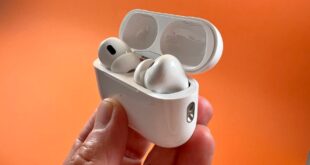Testing blenders isn’t just making smoothies and crushing ice. There are a lot of other recipes blenders work well for and these tests highlight how capable each model is when it comes to dry, large and coarse ingredients.
Ice
In a test of pure crushing power, we placed two cups of ice cubes into each blender. Counting the number of pulses it takes to get to fine, crushed ice gives a good indication of real-world chopping power. The three blenders we recommended above performed well.
Smoothie
A classic blender recipe, fruit smoothies were high on my list of recipes to test. This shouldn’t be a big stress test for any decent blender and so it really comes down to speed and consistency. We used two cups of orange juice and one cup of frozen strawberries to make the test smoothies.
While many of these tests yielded very similar results, a few worked faster than others. Not all blenders come with presets, but the ones that do almost always include a smoothie function. When possible, this is the mode we used. If there was no smoothie blender function, we followed the blender’s manual recommendation for smoothie making. This was usually around a minute on high.
Smoothie testing starts with whole, frozen strawberries and orange juice.
This is a relatively easy test and most blenders handled frozen ingredients well. Some were frothier and some slushier, but only the Black & Decker model left large chunks of frozen strawberry unblended.
Nut flour and butter
Blenders aren’t all about beverages. There are plenty of other uses, including grinding dry ingredients. For our dry ingredient test, we put a cup of almond pieces (unroasted) in each blender and pulsed until those pieces were reduced to a fine flour. A bit of a challenge for some blenders, but most were able to do this in about 10 to 20 pulses, with the Hamilton Beach model yielding noticeably coarser results.
Nut butter is a different story. Most blenders aren’t really designed for long running times and the level of processing needed to make a butter like almond butter or peanut butter. In fact, many recommend not running the blender for more than a few minutes at a time.
This nut flour is a bit coarse.
Only one Vitamix model showed real signs of progress toward almond butter in our testing with the nut flour, and it plateaued before achieving a good consistency. Most models simply whirred the dry ingredients upward and into the hard-to-wash crevices of their lids. If you’re set on making nut butter, we recommend a model like the Oster with an included processing kit, or a separate food processor.
Cheese
Did you know blenders can shred cheese? It’s true; some blenders can. We placed an 8-ounce block of cheese in each blender and pulsed until the entire block was shredded. This brought to light a few interesting design choices among some models. The Ninja, for example, lost the cheese round because multiple blender blade levels made it impossible to fit the cheese block in the blender. I had to cut it up into pieces.
Blenders can shred cheese and this NutriBullet did so in record time; just four pulses.
Both Vitamix models had some trouble with this particular test and bore holes in the cheese block without actually blending it, simultaneously melting what little cheese had been shredded as the machine heated up. Meanwhile, the NutriBullet, Ninja, instant Pot, Breville Super Q and Hurom Hexa handled grating the cheese block in less than five pulses.
Pancake batter
If you’ve seen our list of the best waffle makers, it should come as no surprise that pancake batter made an appearance in our blender testing. While I was happy to fire up the griddle and flip some cakes, mixing batter is an important test. It measures how easy or difficult it is for the blender to mix wet and dry ingredients.
 meganwoolsey Home
meganwoolsey Home



